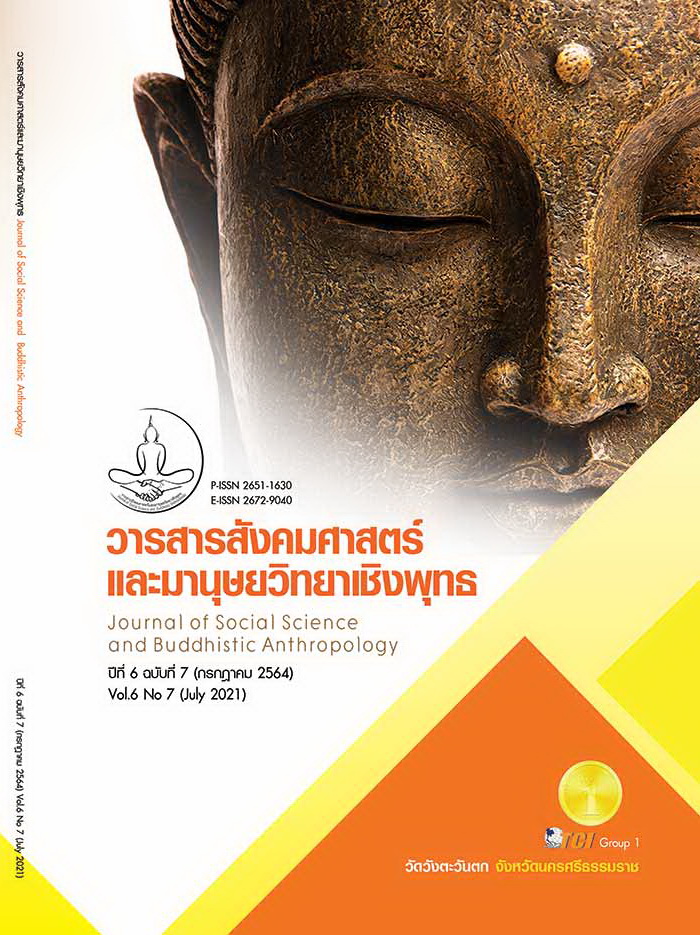INSTRUCTIONAL PARADIGM TO PROMOTE TWENTY FIRST-CENTURY HIGHER ORDER THINKING SKILLS OF GRADE 9 STUDENTS BY NSW MODEL
Keywords:
Instructional Paradigm, Higher Order Thinking Skills, NSW ModelAbstract
The objectives of this research were to 1) develop instructional paradigm to Promote Twenty First-Century Higher Order Thinking Skills of Grade 9 Students by NSW Model, 2) study efficiency of Instructional paradigm that met the 75/75 minimum requirement of the E1/E2 Model for Developmental Testing, 3) compare the students’ Higher Order Thinking Skills values before and after employing this instructional paradigm and 4) to review the students’ opinion on the instruction, which was based on this instructional paradigm. The sample comprised 21 and 31 MatthayomSueksa 3 students, in the first semester of the 2015 academic year from Srikhottaboon school in Nakhon Phanom province and Wanyaiwittaya school in Mukdahan province, respectively. The research tools employed were a questionnaire and a test. The obtained data were analyzed using mean, standard deviation, and t-test. The research has revealed the following: 1) The teaching and learning paradigm is consisted of five elements: 1.1) issue identification, 1.2) solution design and planning, 1.3) job prototyping, 1.4) prototype assessment and improvement and 1.5) visualization of lessons learned, 2) The efficiency of instructional paradigm, meets the 75/75 minimum requirement of the E1/E2 Model for Developmental Testing with E1/E2 values of = 76.92/76.95 respectively, 3) The students’ Higher Order Thinking Skills values before and after the employment of this instructional paradigm yield a value of .01 when compared, which is considered statistically significant, 4) Overall, the students “highly agree” with the instruction based on this instructional paradigm.
References
บุญศรี องค์พิพัฒนกุล. (2550). การเรียนรู้โดยใช้ทีมเป็นฐาน (Team Based Learning) อาจารย์มืออาชีพ: แนวคิด เครื่องมือ และการพัฒนา. กรุงเทพมหานคร: เครือข่ายการพัฒนาวิชาชีพอาจารย์และองค์กรระดับอุดมศึกษาแห่งประเทศไทย.
พิจิตรา ธงพานิช. (2562). การพัฒนากระบวนทัศน์การสอนและการเรียนรู้เพื่อส่งเสริมทักษะการคิดขั้นสูงในยุคการศึกษา 4.0 ของนักศึกษาวิชาชีพครู. วารสารศิลปากรศึกษาศาสตร์วิจัย, 11(2), 179-198.
ศูนย์ดำเนินงาน PISA แห่งชาติ สถาบันส่งเสริมการสอนวิทยาศาสตร์และเทคโนโลยี. (2561). ผลการประเมิน PISA 2015 วิทยาศาสตร์ การอ่าน และคณิตศาสตร์ (ฉบับสมบูรณ์). กรุงเทพมหานคร: สถาบันส่งเสริมการสอนวิทยาศาสตร์และเทคโนโลยี (สสวท.).
สถาบันส่งเสริมการสอนวิทยาศาสตร์และเทคโนโลยี. (2557). ความรู้เบื้องต้นสะเต็ม. (พิมพ์ครั้งที่ 1). กรุงเทพมหานคร: สถาบันส่งเสริมการสอนวิทยาศาสตร์และเทคโนโลยี กระทรวงศึกษาธิการ.
สำนักงานคณะกรรมการการศึกษาขั้นพื้นฐาน สถาบันคีนันแห่งเอเชีย และสถาบันส่งเสริมการสอนวิทยาศาสตร์แลเทคโนโลยี. (2555). สรุปการประชุมวิชาการระดับนานาชาติ เรื่อง “การยกระดับคุณภาพการศึกษาวิทยาศาสตร์ขั้นพื้นฐาน ปี 2555”. กรุงเทพมหานคร: สำนักงานส่งเสริมสังคมแห่งการเรียนรู้และคุณภาพเยาวชน.
สุดาพร ลักษณียนาวิน. (2550). แนวคิดเกี่ยวกับการเรียนการสอนในสังคมฐานความรู้ อาจารย์มืออาชีพ : แนวคิด เครื่องมือ และการพัฒนา. กรุงเทพมหานคร: เครือข่ายการพัฒนาวิชาชีพอาจารย์และองค์กรระดับอุดมศึกษาแห่งประเทศไทย.
Anderson, L. W. & Krathwohl, D. R. (2001). A Taxonomy for Learning, Teaching, and Assessing: A Revision of Bloom's Taxonomy of Educational Objectives. Complete edition, New York: Longman.
Best, W. J. (1997). Research in Education. 3rd ed. , New Jersey: Prentice Hall.
Charles, K. (2014). Do you Want Your Students to Be Job-Ready with 21stCentury Skills. International Journal of Higher Education, 3(3), 81-91.
Ester, M. & David, D. (2017). Peer Learning Network: implementing and sustaining cooperative learning by teacher collaboration. Journal of Education for Teaching, 43(3), 349-360.
Glickman, C. D. et al. (2014). Supervision and Instructional Leadership: A Developmental Approach. 9th ed. Boston: Allyn & Bacon, Inc.
Joyce, B. & Weil, M. (2009). Model of Teaching London. London: Allyn and Bacon.
Marzano, R. J. (2007). TheArtsand Science of Teaching: A Comprehensive Framework for Effective Instruction. Alexandria: Association for Supervision and Curriculum Development.
OECD, PISA. (2015). Results (Volume II): Policies and Practices for Successful Schools. PISA: OECD Publishing.









